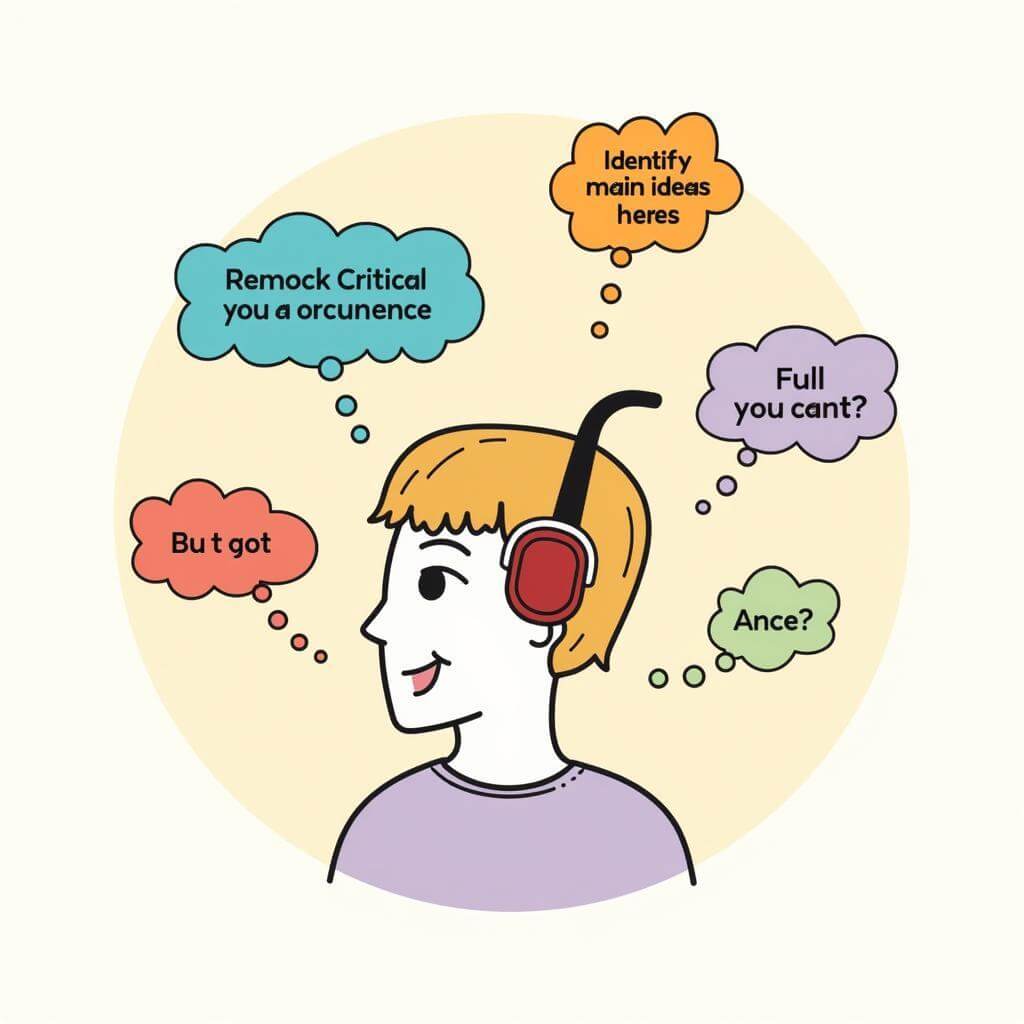Are you struggling to maintain focus during IELTS listening tests? You’re not alone. Many test-takers find it challenging to stay attentive throughout the entire 30-minute session. This comprehensive guide will help you build your listening stamina efficiently, ensuring you’re well-prepared for the IELTS listening component.
Understanding the Importance of Listening Stamina
Listening stamina is crucial for IELTS success. It’s not just about understanding individual words or phrases; it’s about maintaining concentration and comprehension throughout the entire test. Improving listening focus skills is essential for achieving a high score.
Why Stamina Matters in IELTS Listening
- Continuous attention: The test requires uninterrupted focus for 30 minutes.
- Varied content: Topics change rapidly, demanding quick mental shifts.
- Increasing difficulty: Questions become more challenging as the test progresses.
- No repetition: Audio is played only once, so missed information can’t be recovered.
Effective Strategies for Building Listening Stamina
1. Gradual Exposure Technique
Start with short listening exercises and gradually increase the duration. This method helps train your brain to focus for longer periods.
- Begin with 5-minute sessions
- Increase by 2-3 minutes each week
- Aim for 35-40 minute sessions by test day
2. Active Listening Practice
Engage with the audio content actively to maintain focus and improve comprehension.
- Take notes while listening
- Predict upcoming information
- Visualize the scenarios described
3. Diversify Your Listening Materials
Expose yourself to various accents and topics to improve adaptability and stamina.
- BBC podcasts
- TED Talks
- Academic lectures
- News broadcasts
“Diverse listening materials not only build stamina but also expand your vocabulary and cultural knowledge, crucial elements for IELTS success.” – Dr. Emma Thompson, IELTS Expert
4. Implement the Pomodoro Technique
Use this time management method to enhance focus and prevent mental fatigue.
- Listen for 25 minutes
- Take a 5-minute break
- Repeat the cycle
- After 4 cycles, take a longer 15-30 minute break
Practicing listening under time pressure can significantly improve your performance on test day.
5. Mindfulness and Concentration Exercises
Incorporate mindfulness practices to sharpen your focus and reduce distractions.
- Meditation (5-10 minutes daily)
- Deep breathing exercises
- Progressive muscle relaxation
These techniques can help you focus on the right information in IELTS listening by training your mind to stay present and attentive.
Advanced Techniques for Stamina Building
1. Shadow Listening
This technique involves repeating what you hear immediately after the speaker, improving both listening and speaking skills.
- Start with slow, clear audio
- Progress to natural speed conversations
- Practice with various accents
2. Dual-Task Training
Engage in a simple activity while listening to challenge your focus and multitasking abilities.
- Doodle or draw simple shapes
- Solve easy puzzles
- Perform basic stretches
3. Anticipation Exercises
Train your brain to predict information, keeping you engaged and alert throughout the listening task.
- Read the questions before listening
- Make educated guesses about possible answers
- Listen actively to confirm or correct your predictions
How to improve overall comprehension in IELTS listening often involves developing these predictive skills.
Overcoming Common Stamina Challenges
Dealing with Mental Fatigue
- Take short, active breaks between practice sessions
- Stay hydrated and maintain a balanced diet
- Ensure adequate sleep (7-9 hours nightly)
Managing Distractions
- Create a quiet, dedicated study space
- Use noise-cancelling headphones
- Practice in various environments to build resilience
Combating Boredom
- Set specific goals for each listening session
- Reward yourself after completing challenging tasks
- Vary your practice materials and techniques
“The key to overcoming listening fatigue is to make your practice sessions engaging and purposeful. Set clear objectives and celebrate your progress, no matter how small.” – Professor James Chen, IELTS Preparation Specialist
Fine-tuning Your Listening Skills
Focusing on Specific Speaker Details
Pay attention to speaker characteristics to maintain engagement and improve comprehension.
- Identify speaker emotions and attitudes
- Note changes in tone or pace
- Recognize emphasis on key words or phrases
Focusing on specific speaker details can significantly enhance your understanding and retention of information.
Developing Critical Listening Skills
Move beyond passive listening to actively engage with the content.
- Question the speaker’s arguments
- Identify main ideas and supporting details
- Recognize bias or persuasive techniques

Conclusion
Building listening stamina efficiently is a crucial step in mastering the IELTS listening component. By implementing these strategies and techniques, you’ll develop the endurance and focus needed to excel in your test. Remember, consistent practice and a varied approach are key to improving your stamina and overall listening skills.
Frequently Asked Questions
How long should I practice listening each day to build stamina?
Start with 30 minutes daily and gradually increase to 60-90 minutes as your stamina improves. Quality of practice is more important than quantity.
Can watching English movies help in building listening stamina for IELTS?
Yes, but it’s not enough on its own. Combine movie-watching with active listening exercises and IELTS-specific practice for best results.
What should I do if I lose focus during a long listening session?
Take a short break, do some quick stretches or deep breathing, then return to your practice with renewed focus.
How can I improve my note-taking skills for IELTS listening?
Practice summarizing key points, use abbreviations, and focus on recording essential information rather than trying to write everything.
Is it better to practice with headphones or speakers?
Headphones are generally preferred as they minimize external distractions and mimic test conditions more closely.
How can I stay motivated during long periods of listening practice?
Set achievable goals, track your progress, and reward yourself for meeting milestones. Vary your practice materials to keep things interesting.
What’s the most effective way to review my listening practice sessions?
Analyze your mistakes, identify patterns in your errors, and focus on improving specific areas of weakness in subsequent practice sessions.